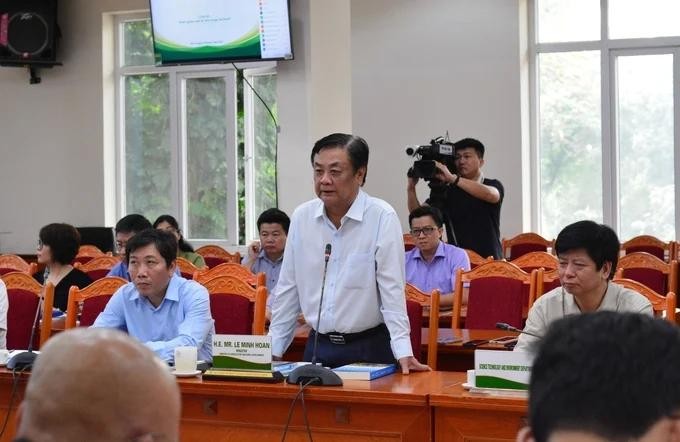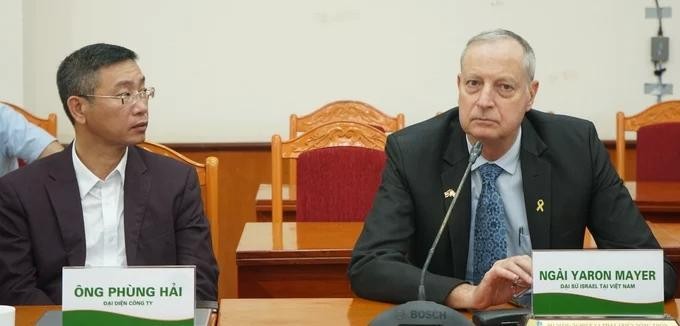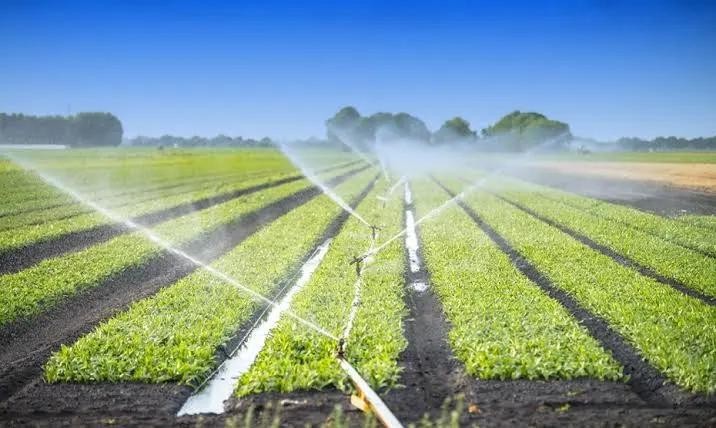Israel has pioneered several techniques for desert agriculture. Vietnam therefore hopes to learn from Israel’s desert agriculture, which can provide valuable lessons about adapting crops to extreme and unpredictable weather.
.

Le Minh Hoang, Minister of Agriculture and Rural Development
Le Minh Hoang, Minister of Agriculture and Rural Development, chaired a workshop to listen to Israeli experts’ experience in desert agriculture to help Vietnam adapt to increasingly severe drought and salinity risks.
Minister Le Minh Hoang, speaking at a workshop on how Israel can turn desert into farmland, hosted by the Ministry of Agriculture and Rural Development in Hanoi on May 10, said that in the face of increasingly severe climate change, much of Vietnam’s of rural areas have been affected. Israel’s desert agriculture could offer hope to many countries, including Vietnam, in the face of drought and saltwater intrusion.
Israeli Ambassador to Vietnam Yaron Mayer, who attended the conference, said that in the past, the country had always suffered from water shortages. To overcome the water crisis, Israel is researching key knowledge and developing effective strategies to promote productive agriculture, including water conservation techniques, water reuse techniques, desalination, and the construction of more water storage infrastructure. has been developed.

Yaron Mayer Ambassador of Israel to Vietnam
The country also promotes human education and develops a culture of water conservation.
Gul Sahu, economic advisor and head of the Vietnam Economic and Trade Mission, also said that 60% of the country is desert. Therefore, Israel used a combination of technology and pipes to minimize water loss.
Instead of creating many new water sources, Israel reuses more than 85 percent of its water, Gul Saf said.
Therefore, 95 percent of Israel’s wastewater is currently treated in wastewater treatment centers located in most Israeli cities and provinces. Gul Sahu said infinite water resources can be utilized by recycling wastewater. In addition, desalinated water is produced in five desalination plants using expensive technology. The five plants are therefore primarily used to treat drinking water (85% of Israel’s drinking water is filtered from salt water).

Ambassador Yaron Mayer also asserted that Israel has experience in combating drought and is ready to advise on technology and cooperation opportunities with Vietnam.
Mr. Vu Kien Trung, Director of Netafim Company (Israel), said that the business has been operating in Vietnam for 26 years and is an application platform for economical irrigation and precision irrigation that has been applied to thousands of hectares of vegetables. He said he was a pioneer in building a Flowers from Lam Dong province, dragon fruits from Binh Thuan province, and sweet potatoes from the Central Highlands region.
Mr Chun said the need for irrigation would be huge as the Central Highlands region undergoes mass replanting of coffee in the coming years, and drip irrigation models are being developed to increase efficiency, reduce costs and save water. He said it needs to be applied.
According to Nguyen Thuong Phong, Director-General of the Department of Water Resources, Ministry of Agriculture and Rural Development, so far 530,000 hectares in Vietnam have been using water-saving methods, mainly sprinkler irrigation, with only a few areas using drip irrigation. It is said to be a place.
Written by Van Phuc – Translated by Anh Quan

